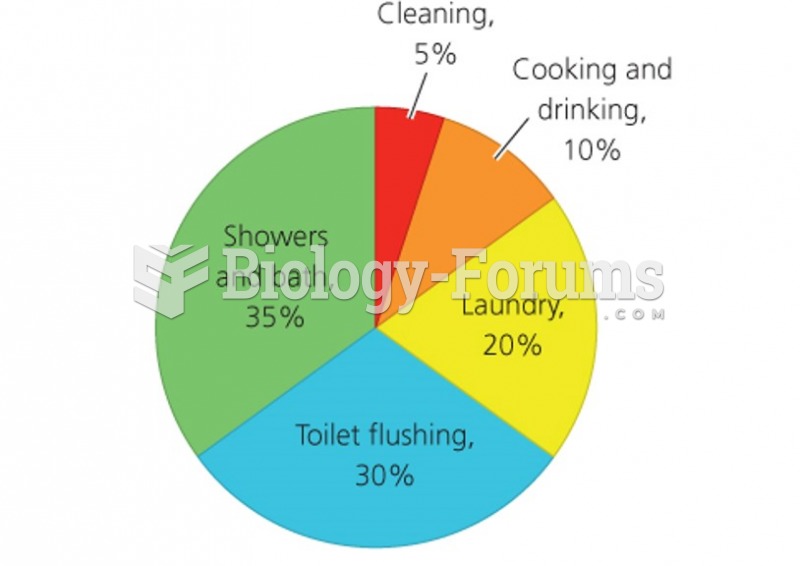|
|
|
Illicit drug use costs the United States approximately $181 billion every year.
The toxic levels for lithium carbonate are close to the therapeutic levels. Signs of toxicity include fine hand tremor, polyuria, mild thirst, nausea, general discomfort, diarrhea, vomiting, drowsiness, muscular weakness, lack of coordination, ataxia, giddiness, tinnitus, and blurred vision.
Thyroid conditions cause a higher risk of fibromyalgia and chronic fatigue syndrome.
Only one in 10 cancer deaths is caused by the primary tumor. The vast majority of cancer mortality is caused by cells breaking away from the main tumor and metastasizing to other parts of the body, such as the brain, bones, or liver.
Green tea is able to stop the scent of garlic or onion from causing bad breath.







